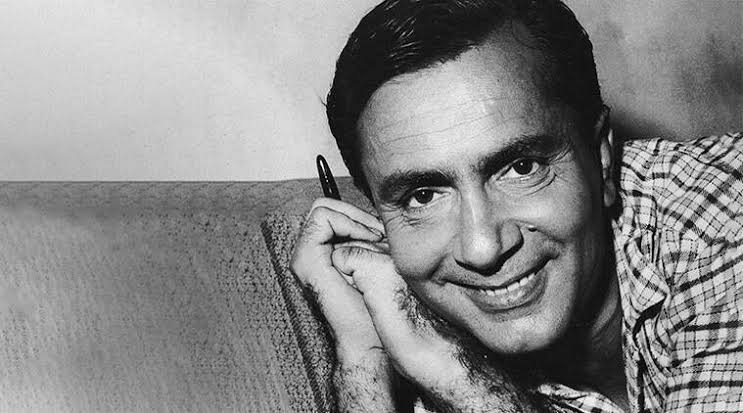
Adhering with Balraj’s wishes, no wreaths of flowers were placed on his body, nor were pundits called or shlokas recited
By Harsh Thakor
Rarely has any actor let alone Indian actor as skillfully or as deeply immersed into the character of a common or oppressed man or expressed sensitivity in such depths, which could appear surreal at times. Balraj Sahni infused realism in acting to depths almost unprecedented. Balraj blended the technical finesse of a surgeon or architect with the creativity of a painter or poet. In my view amongst Hindi film 4-5 finest actors ever, few actors could as directly convey a message, possessed nuances of such telling effect, or manifested purity at such a height. Often, his very eyes could convey the story.
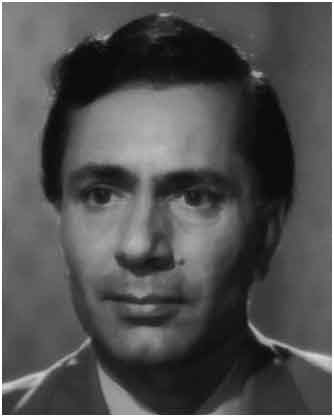 Balraj explored realms untouched in acting defying all conventions in Hindi cinema. Balraj in despair, joy, frustration or anger could be as natural as the fluttering of petals of a flower with a subtle sense of detachment, but was still the product of meticulous work in literally living the character. Balraj took malleability to regions rarely scaled on the screen.
Balraj explored realms untouched in acting defying all conventions in Hindi cinema. Balraj in despair, joy, frustration or anger could be as natural as the fluttering of petals of a flower with a subtle sense of detachment, but was still the product of meticulous work in literally living the character. Balraj took malleability to regions rarely scaled on the screen.
In my view no Bollywood artist ever, contributed as much in championing progressive roles or projecting social reality giving dignity to the common man, on the screen. Till his last breadth Balraj manifested the spirit of Marxism and secularism.
Balraj represented the tradition of the Indian Peoples Theatre Association, which stressed on social themes .Even after his death in many junctures; progressive artists have strived to emulate the style of Balraj Sahni. Many Marxist groups and activists popularize his works.
Early Life
Balraj Sahni was born as Yudhishtir Sahni on 1 May 1913 in Rawalpindi (Pakistan). A double MA in Literature, he married Damyanti (Sahni), daughter of his professor Jaswant Rai in 1936.
Between 1937 and 1938, they encompassed Kashmir and the North West Frontier. Next, they joined Rabindranath Tagore’s Shantiniketan in Bengal as teachers. Son Parikshat (Sahni, actor) was born there and daughter Shabnam was born four years later.
Balraj and his wife, both were members of Communist Party
In London, Balraj joined the BBC’s Hindi service. Impressed by Russian cinema, they were introduced to Marxism and ideas of social and economic equality. Returning home in 1943, Balraj and Damyanti soon became part of the Indian People’s Theatre Association (IPTA). Damyanti’s performance in the play Deewar turned her into a star. Balraj resented that initially, something he mentioned in his autobiography (Meri Filmi Aatmakatha). Balraj gained baptism in his film career in 1946 with films like Insaaf, Dharti Ke Lal, Neecha Nagar and Door Chalein, the last with Damyanti.
Being a member of the Communist Party of India (CPI), Damyanti flung herself into social work. She served the slum-dwellers and even shared meals with them. Unfortunately, she fell ill with amoebic dysentery. The medication took toll on her heart and she passed away in 1947. Unable to cope with the sudden loss, a devastated Balraj would hit his head on the walls and weep. Son Parikshat was only eight then.
Balraj married Santosh Chandhok, a writer, in 1951. Their daughter, Sanober, was so named after the pine trees in Kashmir, Balraj’s second home, something he always remained sentimental about.
Venture into Films
Balraj began doing films around the age of 42. His commitment to the CPI got him entangled within prison bars. The 1950s saw him in films like Seema, Sone Ki Chidiya, Lajwanti and Ghar Sansaar.
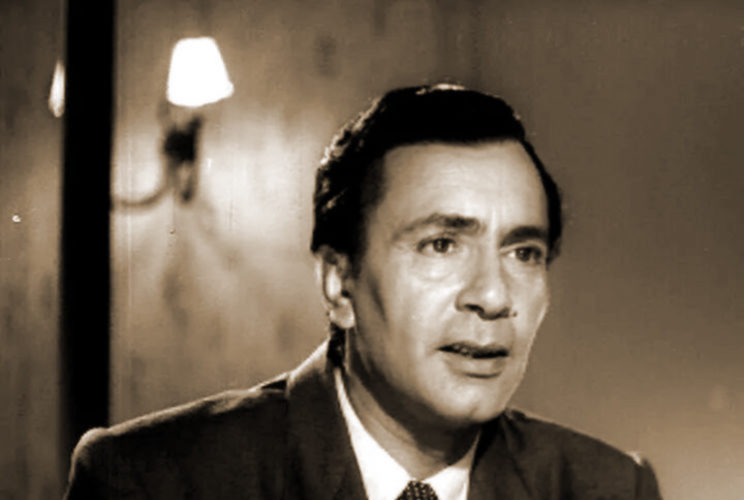
While adhering to his ‘realist’ portrayals in films like Garam Coat (1955), Anuradha (1960) and Kabuliwallah (1961) (for which he resided with kabuliwallahs in a Bombay suburb for a month to prepare for the role!), Sahni went on to play leading roles in commercial films opposite actresses like Nargis in Lajwanti (1958), Ghar Sansar (1958)), with Meena Kumari in Satta Bazaar (1959) and Bhabhi ki Chudiyan (1961), with Vyjayantimala in Katputli (1957) and Nutan in Seema (1955) and Sone ki Chidiya (1958). Sahni depicted characteristic grace and dignity playing his characters, in commercial films.
In the 1960s he gravitated to character roles and gave heart touching performances in films like Haqeeqat (1964), Waqt (1965), Do Raaste (1969), Ek Phool Do Mali (1969) and Mere Humsafar (1970). Sahni also dabbled in direction with Lal Batti (1957) – a film set in the midst of a train and on a lonely railway platform where passengers are forced to spend a night at the time of India’s Independence.
Most Progressive films
To me the most socially progressive films of Balraj Sahni were Dharti ke Laal, Do Bigha Zameen, Anuradha, Kabuliwalla, Garam Coat’ and Garam Hawa.
In Dharti Ki Lal (1946) Sahni was part of a plot which portrayed the great famine of 1943. In 1949, Dharti Ke Lal became the first Indian film to receive widespread distribution in the USSR. The movie was critically acclaimed for its most illustrative portrayal of notorious Bengal famine of 1943 in which over 1.5 million people perished. It gives a realistic picture of the changing social and economic scenario during the World War II. With artistic flair his role projected the turmoil of the farmer and how circumstances shaped their lives.
In his speech in the 1972 convocation at Jawaharlal Nehru University, Balraj said: If we want socialism in our country, we have firstly to drive out the fear of money, position, and power from the minds of our people
In Bimal Roy’s Do Bigha Zamin (1953) Balraj played the farmer-turned-rickshaw-puller, Shambu Mahato. Championing Marxist ideals, he portrayed the metamorphosis of the exploited rickshaw-puller, as though he was the very person himself, penetrating the very soul of the character. It’s now part of cinematic legend that he running barefoot on the scorching streets and cultivated blisters on his soles to fit into the character. With craft of almost unparalleled proportions Balraj portrayed how circumstances govern the course of man’s life with the variance in his facial expressions reminiscent of colors of a rainbow. His acting is classical example of the neo-realism in the Italian film ‘Bicycle Thief. From scenes ‘In the court when pleading for innocence or reprimanding his son in the city of Calcutta , pulling a handcart for sheer survival his face., hearing about the trauma his wife faces grief and finally when he loses his land and is rejected his manifests ,he is completely entrenched into the character ,portraying the very body and soul of lakhs of peasants even today. Balraj took art or skill of acting to regions rarely transcended, here.
In commercial films Balraj was at his best in Haqeeqat, Waqt and Seema.
Other Aspects of Balraj Sahni
The diverse artist also wrote the story and screenplay for Baazi (1951) starring Dev Anand and directed by Guru Dutt. He dipped ink on a wide range of issues including novels and an autobiography. He remained a Left Activist all his life and was part of cultural delegates to the Soviet Union and China. His writings and speeches were compiled by Communist Leader P.C. Joshi in the book Balraj Sahni: An Intimate Portrait (1974).
In 1970, he worked with P.K. Vasudevan Nair to create a new Leftist youth organization, the All-India Youth Federation, the youth wing of the CPI, with him as its first president
He wrote a series of books in Punjabi. Mera Pakistani Safarnama and Mera Russia Safarnama are considered creative writing. Balraj also took to directing IPTA plays and his most successful directional work was Zubaida. He also attempted a film as director in Lal Batti, which was a failed venture. However, writing of the screenplay of film Baazi, directed by Guru Dutt, brought him prominence. Balraj was interested in improving the working conditions of the labor involved in film studios. He took issues with the government on matters that agitated him. He also suffered imprisonment for his Leftist views.
In 1970, he worked with P.K. Vasudevan Nair to create a new Leftist youth organization, the All-India Youth Federation, the youth wing of the CPI, with him as its first president. In 1972, he was invited by the student’s union of Jawaharlal Nehru University, a leftist stronghold, to address the annual student’s convocation. His speech is considered a landmark event in the University’s campus politics.
His speech in the 1972 convocation at Jawaharlal Nehru University can never evade my memory, which searched the soul of any progressive. Here Balraj conveyed the monopoly of capitalist values and disrespect to labor. “If we want socialism in our country, we have firstly to drive out the fear of money, position, and power from the minds of our people. Are we doing anything in that direction? In our society today who is respected most – the man with talent or the man with money? Who is admired most – the man with talent or the man with power? Can we ever hope to usher in socialism under such conditions? Before socialism can come, we have to create an atmosphere in which possession of wealth and riches should invite disrespect rather than respect. We have to create an atmosphere in which the highest respect is given to labor whether it be physical or mental; to talent, to skill, to art, and to inventiveness. This requires new thinking, and the courage to discard old ways of thinking.”
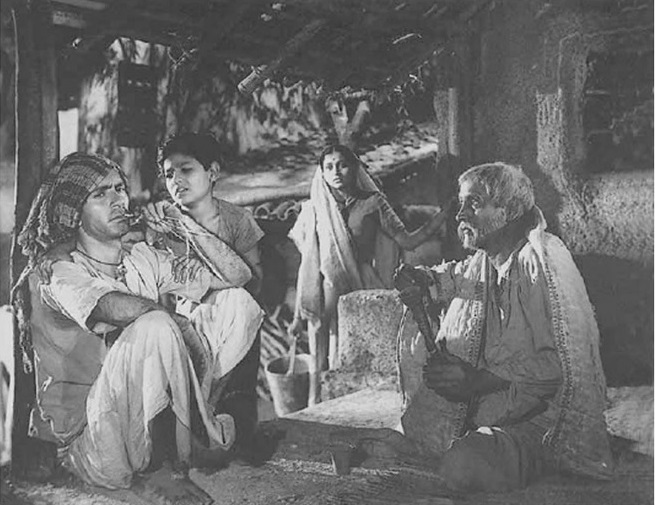
Being a Marxist, he just wished a red flag to be kept abreast his mortal remains
He also referred to the manner English was serving the exploiter or privileged classes. “We have to help the working class achieve a leading role in society. And that can only be done by breaking the domination of English and replacing it with a people’s language. My friend listened to me carefully and largely agreed with me. It is admitted that English is too alien and hence too difficult to learn for the average Indian. And yet, it helps the capitalists and industrialists to consolidate their position on an all-India scale. That one consideration is more important than any other. According to them whatever serves their interest automatically serves national interest too. They are hopeful that in the not too distant future, the people themselves will endorse their stand-that English should retain its present status forever.”
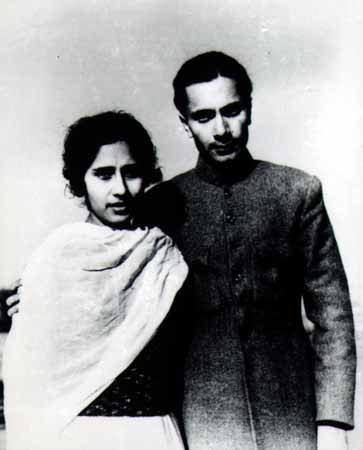
Balraj also highlighted the superficiality of post-independence period placing emphasis on economic disparity created by capitalism“ Pandit Jawaharlal Nehru has admitted in his autobiography that our freedom movement, led by the Indian National Congress, was always dominated by the propertied classes – the capitalists and landlords. It was logical, therefore, that these very classes should hold the reins of power even after independence. Today, it is obvious to everyone that in the last twenty-five years the rich have been growing ‘richer’ and the poor have been growing poorer. Pandit Nehru wanted to change this state of affairs, but he couldn’t. I don’t blame him, because he had to face very heavy odds all along.”
Sadly his personal life was scarred with tragic incidents, like the death of his daughter Shabanam in 1973. Some interesting anecdotes of his life have been untraveled by his son Pariksht Sahni in work “The Non-Conformist: Memories of my father Balraj Sahni.” They reveal how Balraj cherished Communism and the Soviet Union stressed how one could be a good actor, only by being a god human being. And immersed or integrated with common folk as though he was part of them. However they also unravel how son Parikshit felt abandoned by his father who sent him to study in boarding schools and felt neglected.
Weaknesses
One could be critical of his failing to recognize the revisionist path of USSR under Khrushchev from 1956, his opposing China in the 1962 war, failing to raise his bold voice against the extermination of the naxalites, and to an extent soft-pedalling with the reactionary politics of Indira Gandhi, like supporting invasion of Bangladesh. During the post Sino-Indian war, Balraj found himself on an opposite platform to that of the CPI on the war. He accepted a role in Haqeeqat (1963-64), which depicted a pro-India position and his leftist colleagues were embittered by his participation. When Jawaharlal Nehru died, Balraj openly praised for Nehru’s contribution to nation building. Balraj was criticized for this praise within IPTA
He also accepted quite a number of commercial roles and failed to do complete justice to constructing genuine revolutionary theatre or film movement.
Balraj portrayed the common trait of artists, opposing subordination to an organized body.
However these are minor aberrations, when one weighs his service to humanity.
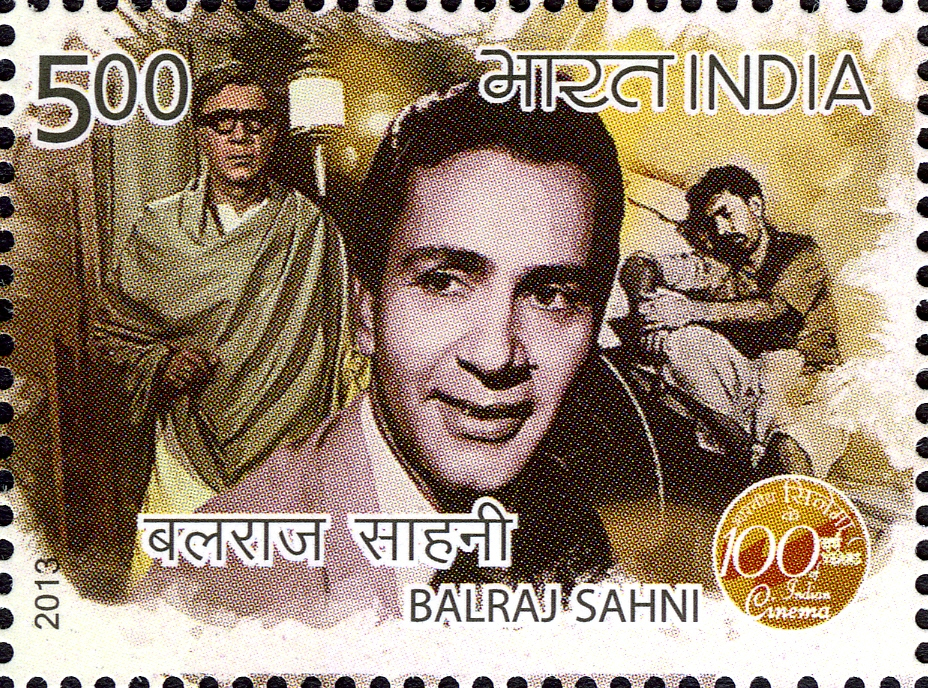
End
In the course OF the India-Pakistan War of 1972, he backed Indira Gandhi’s waging a war against Pakistan to liberate East Pakistan. The CPI strongly disapproved of this passed resolution expelling him from the party. The job to inform Balraj that he was no more a member of the CPI was entrusted to some of his closest friends in Bombay, who handed over the copy of the resolution. He had recently suffered an emotional setback due to the untimely death of his daughter, Shabnam. Balraj suffered a massive heart attack from the compounded stress and passed away on April 13, 1973. In his dying moments, Balraj asked his wife to get a copy of Das Kapital, the communist movement’s bible and place it beside his pillow. There could not have been a more appropriate end. Adhering with Balraj’s wishes, no wreaths of flowers were placed on his body, nor were pundits called or shlokas recited. Being a Marxist, he just wished a red flag to be kept abreast his mortal remains. For someone, who bore the weight of emotional burdens all his life, now only wanted to tread on the path of his belief.
[Published in India on 13/04/2023]
_______________
Harsh Thakor is freelance journalist who has done extensive research on progressive Hindi film actors and films